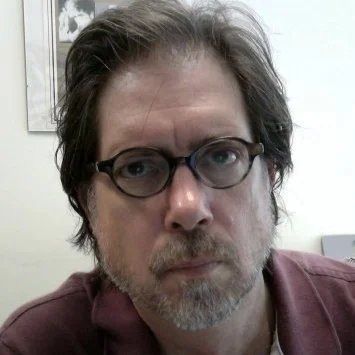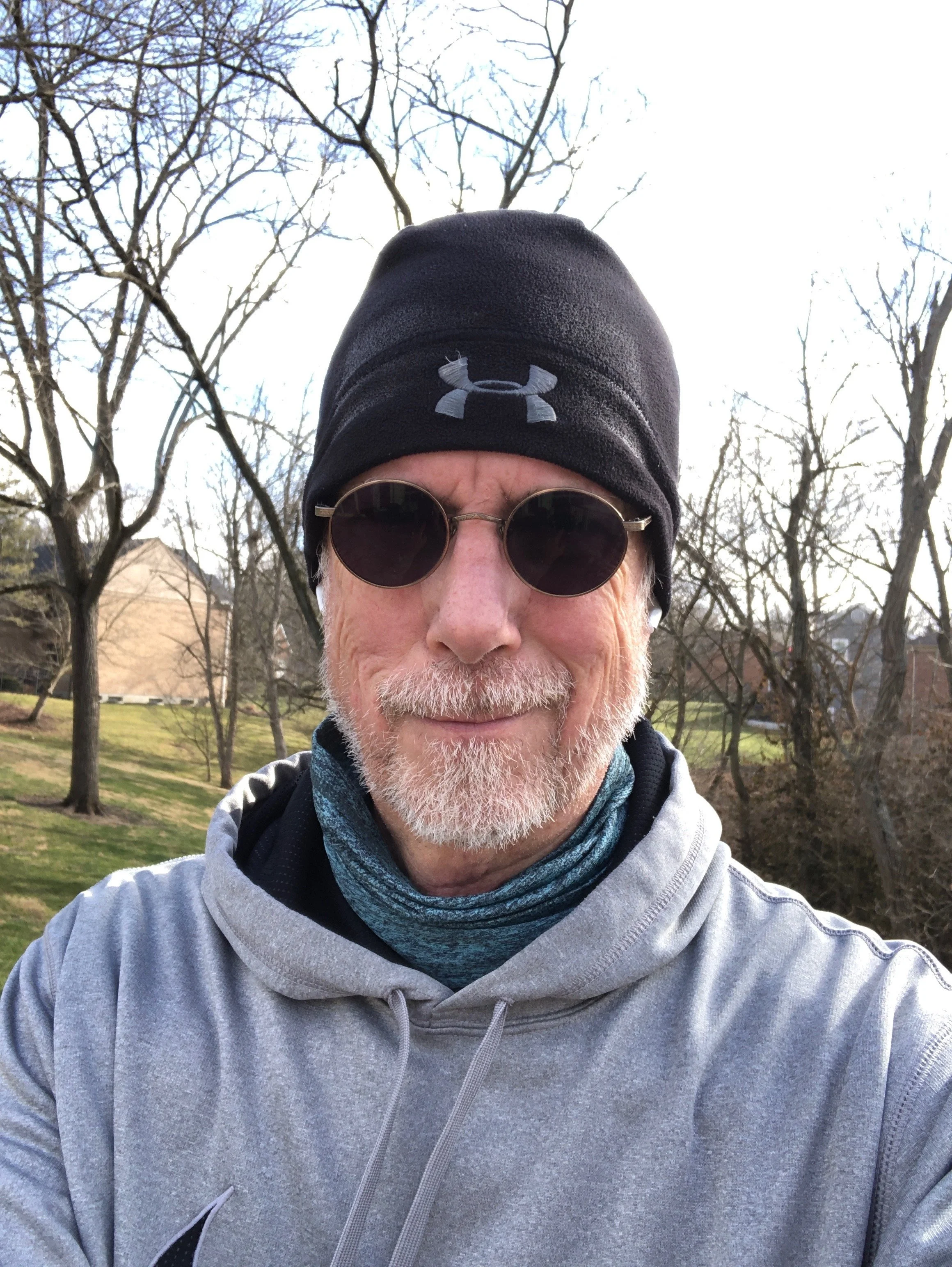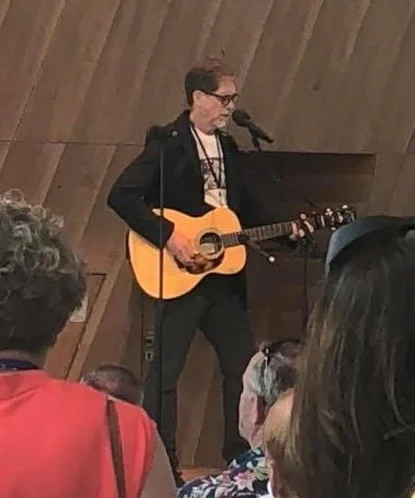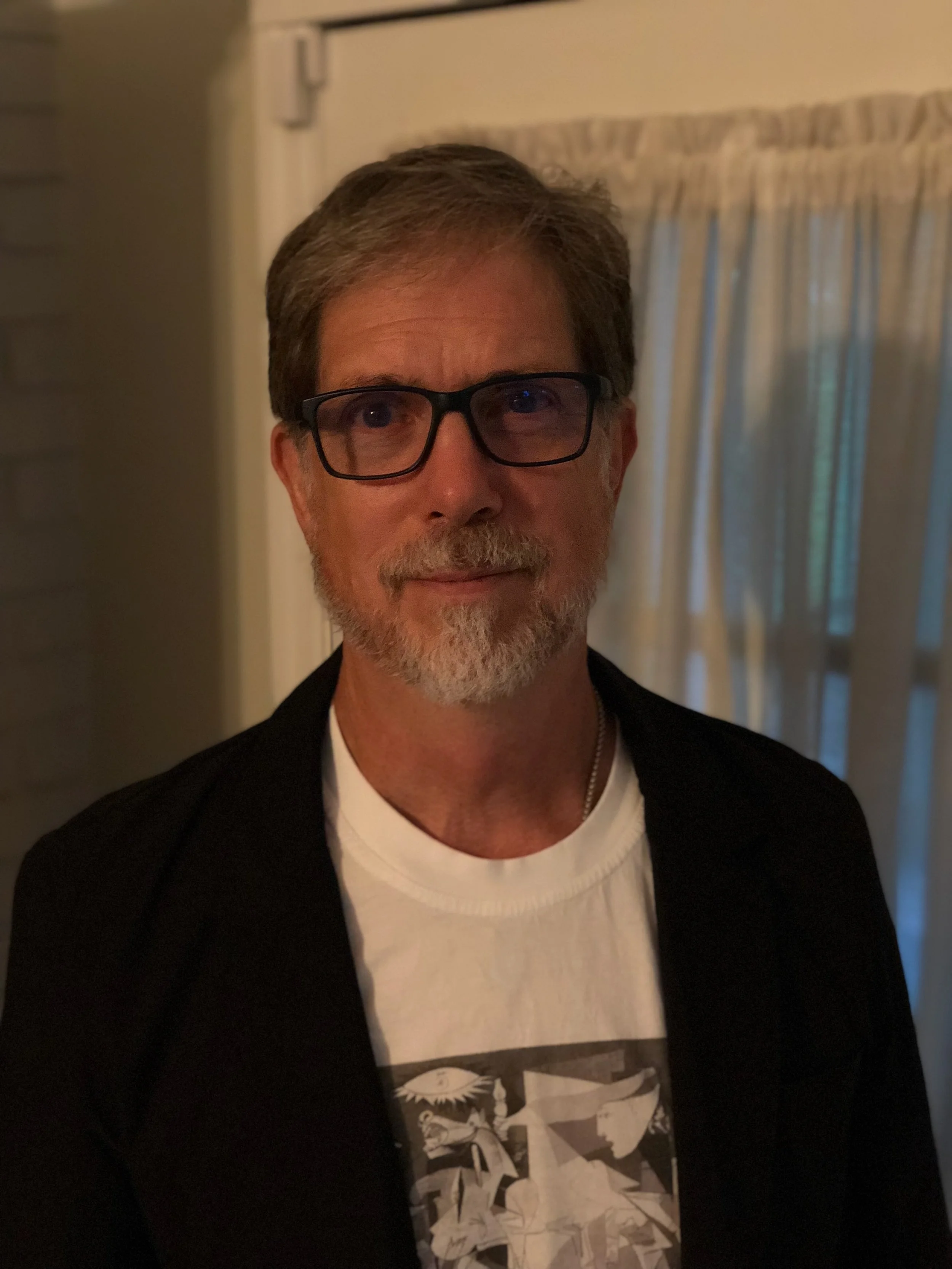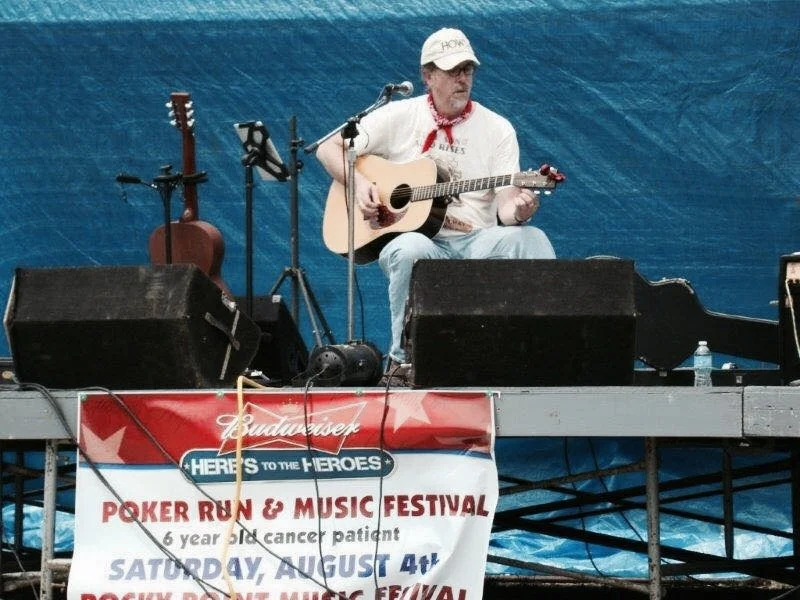About Me
A Writer’s Life
I’ve done and continue to do all kinds of writing—fiction, non-fiction, poetry, essays—but my songwriting remains closest to my heart, what I spend most of my energy on. This tends to surprise some people who know me, because I’ve been something of a musical underground man most of my life. I’ve been writing songs and recording them alone for more than 50 years—making music, for better or worse, to satisfy myself first and last. Of course, I’d love for other people to like it, but if they don’t, that’s fine. I’ll keep on keeping on, because something drives me to.
It took me a while to discover this about myself during those years of my childhood in a series of small towns in Southern Indiana—Tell City, Connersville, Cannelton, Tell City again, Washington, Ireland, Rockport, and finally Tell City for the third time. Dear old TC is where I spent my high school years.
While my mother was somewhat musical and played at the piano, we didn’t have a piano in the house until those high school years, and I never took lessons. She had me in band with a trombone a couple years in grade school, but that didn’t stick, maybe because I was really a singer at heart, and it tends to be difficult to sing while you’re playing a trombone.
My dad was a coach and school administrator for most of my childhood, and his fervent wish was for me to be an athlete. I admired my dad a great deal, so I spent a lot of time trying to please him in sports. I did all right, and I continue to love sports, but this was all at the expense of a creative and musical side of me that was being suppressed. It was there, though, percolating, as I absorbed all the great music of the Sixties. I finally asked for and got a cheap Harmony guitar for Christmas my senior year of high school.
Then, still trying to please my father, I went to the Air Force Academy, which was the only school of any status to recruit me to play basketball. Having been a supporter of Eugene McCarthy and Bobby Kennedy and an opponent of the Vietnam War, I should have known I was not military material. Naturally, I didn’t last long at USAFA and landed at the University of Evansville, where, totally unsure about what career path I wanted to follow, I immediately took up the guitar and started learning as many Bob Dylan and Beatles songs I could.
By the summer of 1972, I wrote my first song and was off and running, spending half my summer earnings on a sweet Gibson Dove guitar that is still with me. A semester at Harlaxton College that fall at last uncovered a career path in English, teaching literature and writing and doing my own writing on the side. I wrote a lot of crappy songs those years but, slowly and haltingly, made myself better—at words and music.
I married much too young in 1973, and so I had to support myself and a young family. Miami of Ohio offered me a teaching assistantship and after two years, with an M.A. in hand, I was extremely fortunate to land a job as an English prof at Raymond Walters General and Technical College, a branch campus of the University of Cincinnati in 1976, the same year as the birth of my first son, Chris. A second son, Jesse, was born in 1979.
Between teaching comp, lit, and journalism and grading mountains of papers, I quietly worked on writing and musicianship. Occasionally, I brought out my guitar to do public performances at campus events and for a while (early Eighties) joined up with a band of guys in Northern Kentucky who called themselves, maybe appropriately, Last Ditch Effort. They were good guys and good musicians, but they only wanted to do covers, and I wanted to focus on original material, so we parted amicably. After a few jam sessions, I went back to doing my thing solo in the basement.
By 1985 I figured my lyric writing, singing, and ear for music had improved enough to make a serious attempt at recording my first album all on my own. With a hefty loan, I purchased a Tascam 8-track reel-to-reel recorder, a 16-channel mixing board, a synthesizer, a drum machine, and some studio rack effects, and set it all up in my damp, leaky basement under the garage. I finished it in about eight weeks.
I called the album Kangaroo, from a song about a guy paralyzed from the neck down in an auto accident. The album is certainly a product of its time, not much like anything I've done since in terms of its sound and production, but I gave it all I had, like it was the last thing I might ever do. My wife had a hard time understanding what it was all about, and there might have been a bit of madness about the project. I'm sure I wasn’t the easiest guy on the planet to live with.
The synth and drum machine on Kangaroo dominate the sound, like it or not, but I still feel the words hold together as a song cycle on a life of the imagination, with songs like “4th of July in the Asylum,” "Hole in My Head," “Stay Alive,” and the aforementioned "Kangaroo." I felt good about it, made a couple hundred vinyl copies, which eventually sold out. Look around, you might find a copy somewhere in a used record store. A guy who ran a record store in San Francisco contacted in few years ago, wanting to buy 20 copies of the album. He had run across it out there and really liked it. I shipped him all I had left. The vinyl’s all gone now, but Kangaroo is still available to stream, as is all of my music, on Apple, Spotify, Youtube, and other streaming services. There are links to it all from this website.
My marriage fell apart in the late 80s, and I spent a six-month sabbatical from teaching to hawk my songs in Nashville, making weekly appearances at open mics in several clubs there. I did get a few songs picked up by a publisher, but nothing happened. The best thing from that period was being selected for a Songwriters Sunday Night Showcase at the Bluebird Café, the venue that launched many a songwriter’s career. But not mine, sad to say. From what I could tell, breaking into the Nashville scene requires a full-time commitment, much more than a six-month sabbatical, and I had too many financial obligations back home for that. So it was back to the grindstone.
Once more in Cincinnati, I renewed my teaching career, but did put together my second album, Flood Wall, a more guitar based collection of demoes recorded during my time in Tennessee. Included were the violent tragedy of “All Along the Flood Wall,” the end-of-romance in “Cut and Dried,” a little social commentary in “Lonelyhearts Waltz,” and a rocker, “Fuel to the Flame,” another sort of scorched-earth account of the end of a marriage.
In the 90s, I remarried on the rebound, and my music took a back seat to the writing of a novel, Fear and Desire. Early drafts, read by highly regarded published fiction writers Lee K. Abbot and Chris Noel, at the New York State Writers Institute, were well received, but, still, I couldn't find an agent, when I reached a conclusion to it in 2002. I’ll put up the first chapter here. I still want to do another rewrite of the whole thing and try to get it published one way or another.
I was about to do that rewrite in 2003, but then my second marriage fell apart, and serendipity led me to write a different kind of book, the true story of the 1963 Ireland Spuds, a story I lived through as an eleven-year-old. It took another ten years of hard writing, but Indiana University Press finally published the book, One Small Town, One Crazy Coach, in 2013. A creative non-fiction account of the Ireland, Indiana, high school basketball team’s improbable success under the leadership of a highly unconventional coach (hired by my dad, who was the principal of the school), the book received some glowing reviews. Being print-on-demand, it should remain in print in perpetuity. Former NBA coach Del Harris championed the book, calling it a more realistic followup to the film Hoosiers.
In the gaps between writing, revising, and editing the book, however, I never drifted far from my love of music and songwriting, and in 2010, I released my third collection of songs, Begin 2, this time going for a completely acoustic sound, on which I played guitar, banjo, mandolin, and dobro. With some exceptions, the songs were generally less personal, venturing into alternately dark and light philosophical and spiritual waters, on “Holy Slow Train,” “Plato’s Slave Boy,” “Little Blue Ball,” and “I Like the Buddha.” The banjo blues “Blacksburg” covered the shock of the Virginia Tech massacre, “New Orleans” looked at the horrors of Hurricane Katrina, and “Jesus Forgot” scoped the Iraq War.
In another bit of serendipity, I sort of happened into a late career foray into the scholarly study of Ernest Hemingway, presenting papers focusing primarily on Darwinian elements in Hemingway at conferences almost yearly from 2010 onward and publishing most of these in The Hemingway Review and other journals or anthologies. I've made lots of friends in the Hemingway world, opening up plenty of other opportunities, for which I'm grateful. One such was being asked to complete the guidebook, Reading Hemingway’s A Farewell to Arms, left unfinished by Robert W. Lewis at his death. I spent three years on the project, and the book was published in 2019 by Kent State University Press to excellent reviews.
I also married for the third time in 2015, to Minsun Kim, who has been my guiding light since 2003. It’s cliché, but the third time is truly the charm. She’s my soul mate and has made our time together the best and most productive years of my life.
I also retired from teaching in 2015, so I could devote myself full-time to writing and making music. I loved my years teaching, but what a relief it has been to have no more papers to grade. After finishing the Hemingway guide book, by spring of 2020, I had enough new songs to release album number four, Ship of Fools, just as Covid hit. The eight songs are probably my most Dylanesque, including the philosophical odyssey of “The Edge of the Abyss,” “Dark and Scarlet Moon,” a jazzy tribute to John McCain, with a trumpet, sax, and piano combo and two Hemingway inspired songs—“Caporetto” and “Unfinished Church”—the latter performed live by request at a Hemingway Society meeting in the Eiffel Tower in Paris in 2018.
As the years have passed, I like to think my songwriting has only gotten better. But you be the judge. I’m not as prolific now as I was earlier, when I would sometimes write 20-30 songs a year, but now I spend a lot more time working them into their best versions than I ever did before. Hemingway inspired songs have been an important part of the action since 2016. I've now written eight, and I believe there’s more water in the well. Eventually, I’ll put them all together on an album of their own.
Other songs keep coming too, most often with social commentary, as in "Republican Sex" and "We All Live in Ukraine."
I now have three beautiful grandsons, and maybe this all for them more than anyone else. I want to leave them some of way of getting to know who their Poppo was. I’m not about to quiet. I’ll keep going as long as I’m blessed with good health, but when you reach your 70s, you understand that every day is a gift.
As I said in “Torch,” the closing tune way back on Kangaroo, I hope to sing until I die. If you've read this far, maybe you'd like to ride along too. If not, the holy slow train rolls on, no matter. Thanks for reading and listening!
MKR
Cincinnati
2 July 2025
